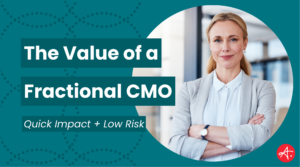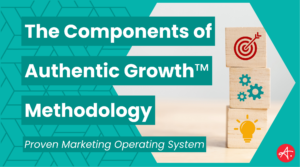
The value of a fractional CMO: Quick impact and low risk
There’s a point in a company growth cycle when businesses recognize that they need to invest in marketing for continued growth. Often these companies have been sales-driven until they realize they need a marketing leader dedicated to building brand awareness and driving meaningful engagement to support business objectives. They often choose between hiring a full-time leader, a fractional CMO, or a marketing agency.







